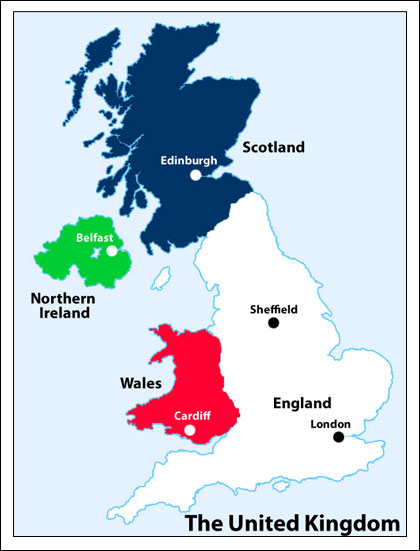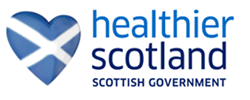

 July 22, 2010 - Bribering people to live a more health lifestyle. The idea is simple: pay people to act now and governments will reap the rewards later in lower healthcare costs. Statistically speaking, people who shun harmful habits are more productive and have less need for expensive hospitals, doctors and medicines. By changing “habitual health-related behaviours,” says Theresa Marteau, director of the Centre for the Study of Incentives in Health and a psychology professor at King’s College London, those behind the schemes aim to make more people healthier for longer. Specifically, “they’re trying to tackle the big four that are responsible for most of the world’s premature deaths and illnesses — excessive eating, smoking, drinking and lack of exercise,” says Marteau.
July 22, 2010 - Bribering people to live a more health lifestyle. The idea is simple: pay people to act now and governments will reap the rewards later in lower healthcare costs. Statistically speaking, people who shun harmful habits are more productive and have less need for expensive hospitals, doctors and medicines. By changing “habitual health-related behaviours,” says Theresa Marteau, director of the Centre for the Study of Incentives in Health and a psychology professor at King’s College London, those behind the schemes aim to make more people healthier for longer. Specifically, “they’re trying to tackle the big four that are responsible for most of the world’s premature deaths and illnesses — excessive eating, smoking, drinking and lack of exercise,” says Marteau.
Many in Dundee, Scotland are at risk from all four. Moira Christie had smoked for around 35 years by the time she joined her incentive programme, which is called Quit 4 U. The scheme is backed by Britain’s National Health Service (NHS) and was born out of a similar project, Give It Up For Baby, which aims to reduce shockingly high rates of smoking among mums-to-be in Dundee. In some of the poorest areas of the city up to 40 percent of pregnant women and half of all adults smoke, while rates of obesity and alcohol-related illness are among the highest in Europe.
Andrew Radley, a public health expert who along with colleague Paul Ballard has championed Quit 4 U and is now overseeing its expansion into other areas. “You therefore have to work with them to come up with motivators that are actually part of their way of thinking.”
Participants get 12.50 pounds ($19) on a grocery store card every week they stay off tobacco, building to a potential total of 150 pounds (228.85 USD) after three months. For mums-to-be who stay off cigarettes, the payments continue until the baby is three months old. Anyone who gets that far would take home 650 pounds (991.76 USD). Participants in both schemes commit to regular carbon monoxide breath tests to prove they’re not cheating.
The lure of extra cash has so far proved enough to get even some of the most die-hard tobacco addicts to quit. Margaret Robertson, a former 40-a-day smoker who attends the weekly breath test and support group sessions alongside Christie, is proud of the little nest egg she’s nurturing. “I’m letting it build up until Christmas. That’s when it’ll really help,” says Robertson, 61, who started smoking when she was 11 years old and has just completed her sixth smoke-free week in 50 years.
When Dundee’s first pilot project started in 2007, critics condemned the idea of incentives as little more than state bribery. So far, though, the results have been impressive: 12-week quit rates are more than double those achieved in any previous years. By the end of the first year, 55 mothers in the city of Dundee, which has a population of 140,000, had quit smoking using the incentive scheme, and 140 had quit across the coastal Tayside region of eastern Scotland. The year before, just six pregnant women had made contact with Tayside’s stop smoking services — and none of them stayed in touch beyond four weeks.
Even these pilots can be cost-effective, argue Ballard and Radley. They put the overall cost per quitter at 1,700 pounds (2,593.96 USD), which might sound a lot until you consider that smoking costs Britain’s taxpayer-funded health system some 5 billion pounds (7.6 billion USD) a year according to a 2009 study by Oxford University researchers. Globally, the World Lung Foundation estimates the annual cost of smoking is $500 billion in medical expenses, lost productivity and environmental harm.
“The whole methodology of this incentive scheme is defined by community-based research. It is driven by what is of most value to the target audience,” says Ballard. If you get it right, it can be “an approach that can really deliver results.”
There is no doubt Scotland can do with the help. A study published last month found that almost the entire adult population of Scotland — 97.5 percent — have habits that are deemed “dangerous to health” including smoking, heavy drinking, taking no exercise, being overweight and eating a poor diet. (PAPER: Scotland Unhealthy risk factors those with lack of education/ low income..)
The ‘Glasgow effect’ - Smoking rates are higher in Glasgow than in the rest of Scotland. Glasgow is known to have a poor health record. .
Ballard calls Dundee an “incredibly unhealthy” city in a “mega unhealthy” nation. In truth, the rest of the developed world is not much better. Obesity, smoking, alcohol and lack of exercise are causing more protracted and expensive diseases, and killing more residents of the rich world earlier, than anything else. The World Health Organisation (WHO) predicts that by 2015, around 2.3 billion adults worldwide will be overweight and more than 700 million will be obese.
In Europe, the WHO reckons obesity alone is already responsible for up to 8 percent of all health costs and between 10 and 13 percent of deaths. Experts predict that in Britain almost nine out of 10 adults and two thirds of children will be overweight or obese by 2050. By then the medical bill and loss of productivity could top 50 billion pounds a year.
Reference: Can bribery help you be healthy? by Kate Kelland, Health and Science Correspondent, REUTERS - TorontoSun.com, 7/15/2010.
Scotland - related news briefs:
Scotland - Imperial Tobacco in legal action to stop ban on cigarette displays and vending machine removal..;
Scotland - tobacco industry says massive increase in illegal cigarettes..;
PAPER: Scotland Unhealthy risk factors those with lack of education/ low income..;
Scotland - renewing efforts to stop pregnant women from smoking..;
Scotland - cigarette smoking quit attempts increase by 35%..;
Scotland - retailers can provide input on future to ban the display of tobacco..;
Scotland - campaigners want more to be done to protect young people from passive smoking..;
Scotland - government no plans to ban smoking in cars and public places used by children..;
Scotland - smokers will be banned from fostering or adopting children, comments from Professor Banzhaf..;
Scotland - parliament votes to ban retail cigarette displays and vending machines..;
Scotland - health minister urges smokers to quit..;
Scotland - some men beginning to lead a healthier lifestyle and therefore living longer..;
Scotland - self-reporting of smoking by pregnant women underestimates true number of pregnant smokers..;
Scotland - tobacco firms claim proposed display ban is unnecessary..;
"Glasgow effect" - prevalence of cigarette smoking impact on poor health..;
Scotland - tobacco industry will try to stop attempts to curb sales to young people..;
Scotland - cigarette vending machines removal..;
Scottish politicans most have the courage to protect the health of their constituents..;
Scotland - small businesses given extra 2-years to remove tobacco displays..;
Northern Ireland - assembly approves ban on display of tobacco items..;
Scotland to ban cigarette displays and outlaw cigarette vending machines..;
Bar workers who smoke also benefit from smoking ban..;
17 countries in the world ban indoor smoking - ENFORCEMENT..;
England, Wales to ban tobacco displays in shops..;
Definite Health Benefits of Smoking Bans..;
Northern Ireland raising age for sale of tobacco from 16 to 18 joining the other three United Kingdom (UK) countries..;
Scotland proposes to implement more measures to discourage tobacco use including the banning of tobacco displays..;
Raise Age to 21 to Purchase Tobacco Products...
Bringing the World of Tobacco Control closer together..
Scotland - bribing people to live a healthy lifestyle..
Subscribe to:
Post Comments (Atom)


To Provide Public Awareness
Purpose
About Us
Contact Us
2008 HIGHLIGHTS
TOPIX PAPERS - 2008 & 2009..
Archive
-
▼
2010 (1530)
-
▼
07/18 - 07/25 (26)
- Altria, RAI and PMI q2 2010 earnings boosted by h...
- Florida - individual cases against big tobacco can...
- U.S. - 7.6% of children live with a smoker but va...
- WHO - IOC to work together to promote healthy life...
- Highlights - Altria q2 2010 earnings report..
- Highlights - PMI q2 2010 earnings report..
- Highlights RAI q2 2010 Earnings Report..
- New Hampshire - sues 2-retailers that allow custo...
- Scotland - bribing people to live a healthy lifest...
- Namibia - tobacco control act may take years to im...
- Arab countries exchange 'lessons learned' from tob...
- Iran - won't be able to get a job in the execuiive...
- Vietnam - cigarette smuggling increases from year-...
- Jamaica - tobacco industry targeting women in po...
- WTO establishes panel to resolve dispute - Indo...
- Singapore - changes to the Anti-Smoking Bill passe...
- Cuban cigars - increased sales after a decline in ...
- Turkey - WHO presents Prime Minister Erdoğan with ...
- Philippines - Philip Morris report sales higher t...
- PAPER: Use of snus to quit smoking but nicotine...
- Study finds teens twice as likely to try smoking i...
- North Carolina - U.S. cigarette consumption in 200...
- FDA CTP Scientific Advisory Committee Meeting outc...
- Michigan - patients caught smoking will be dischar...
- USA FDA - CTP - highly popular machine made fla...
- Time for USA to be part of the world community..
-
▼
07/18 - 07/25 (26)
© Copyright Notice: The content of this website is for information education purposes only and any newsbrief may be used only as "fair use" for information/education purposes with permission of the authors and providing that original references and associated reference links are included in HTML format.
0 comments:
Post a Comment